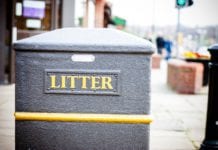Tosyalı, Turkey’s global green steel producer, continues to inspire the green transformation of the iron and steel industry with its investments in advanced technology, clean energy sources such as solar and hydrogen, EPD certificates showing its low carbon footprint and the new V-Green green steel brand. Tosyalı Holding Chairman Fuat Tosyalı said, “The European Green Deal is not a threat, but an opportunity for industrial transformation in the transition to a green economy. The iron and steel industry is a candidate to be the most important actor in this transformation process with its wide sphere of influence” Tosyalı points to the key role of the industry in green transformation.
Iron and steel is perhaps one of the oldest and long established sectors, along with food and textiles. Today, steel affects human life in almost every aspect of life, albeit in a different form.
Houses and Buildings: Steel is used in the construction of our homes. Steel frames, columns and beams ensure the durability of buildings.
Transportation Vehicles: Steel is an important component in transportation vehicles such as buses, subways and automobiles. The chassis and bodies of these vehicles are usually made of steel.
Pipelines: The pipes that carry water and natural gas to our homes are usually made of steel. Steel pipes provide durability and longevity.
White Goods and Electronic Products: Steel is used in white goods such as refrigerators, washing machines and electronic products such as televisions. Steel ensures that these products are robust and durable.
Infrastructure and Superstructure Systems: Steel is widely used in infrastructure projects such as bridges, dams, train tracks and superstructure projects such as skyscrapers. Steel is indispensable for the safety and durability of these structures.
The green transformation, which is gaining momentum in the world, especially with the EU Green Deal, is unlikely to be realized without iron and steel due to its wide range of impacts. Steel is responsible for 7% of global carbon emissions. Approximately 8% of global energy demand belongs to the steel industry. When we consider other related sectors such as renewable energy, hydrogen, wind and electric vehicles, it becomes much clearer how steel can have an impact on the green transformation. In fact, according to some calculations, more than 74 million tons of steel will be needed just to increase renewable energy production. It seems that if the Net Zero era is to begin, it will be paved by the transformation of the iron and steel industry.
Recognizing this, some global iron and steel producers have already initiated green transformation. One of these is Tosyalı Holding, Turkey’s global iron and steel producer. Tosyalı is one of the world’s leading green steel producers with nearly 40 facilities on 3 continents, an annual production capacity of 10 million tons and approximately 15 thousand employees. All of its investments in Turkey and Algeria are focused on carbon-free steel production. Stating that the process that started with the EU Green Deal is an opportunity, Tosyalı Holding Chairman Fuat Tosyalı said, “On one side, the EU Green Deal, and on the other side, the Inflation Reduction Act (IRA), which is described as the largest ‘climate package’ in US history. This movement that started in Europe will spread to all continents. Therefore, it is not correct to perceive this as a regional issue or as an issue that can be carried out over a long period of time. I think the European Green Deal is an opportunity for industrial transformation in the transition to a green economy. The iron and steel industry is a candidate to be the most important actor in this transformation process with its wide sphere of influence.”
Hydrogen Use in Steel Production Increases.
Fuat Tosyalı says that the green transformation has several fundamental pillars, and that clean and renewable energy sources are the most important agenda items in this process: “Fossil fuels have a 75% share in global steel production. The intensity is in coal. Therefore, clean energy investments are the most critical issue for our industry. There are renewable energy, clean fuels that produce near-zero emissions, energy storage, smart energy management systems and many other technological and innovative systems. In the use of renewable resources, I can say that especially SPPs installed on the roofs of industrial facilities and in different areas within the facility are much more useful and applicable. Of course, electricity and renewable energy alone are not enough to reduce carbon emissions in the short and medium term. Natural gas is one of the first ways the sector is moving away from coal. But at the end of the day, it is not a renewable and completely clean resource in terms of production. We need clean energy sources that we can use directly instead of natural gas. The most prominent one is hydrogen. Different studies have shown that using green hydrogen in production processes has the potential to reduce emissions by up to 97%.”
World’s largest rooftop SPP project
Stating that Tosyalı Holding continues to make significant investments in solar energy as a clean energy source, Fuat Tosyalı said, “The carbon emission caused by the use of coal in production is a serious risk for the future of the world and the environmental cost created by this risk is increasing day by day. As Tosyalı, we have never relied on coal-based energy. In fact, it was the easiest. It was known. The investment cost was less. But considering the future of the world and the sustainability of the ecosystem of which we are a part, we have turned to clean and renewable energy sources. For example, we have been making serious investments in solar energy for a long time. With the SPP project we realized with the investment we made in all our facilities at the same time, we have reached 235 MW installed power, making us the company with the largest rooftop SPP in the world. With this project, we prevented approximately 171 million kg of carbon emissions and became one of the world’s greenest steel producers. Our SPP investments will continue. By 2025, the electricity we procure from our own production with the SPP investments we plan will constitute 50% of our total electricity use.” He gives a good example of how companies can actually open windows of opportunity by taking forward-looking steps when they are faced with the dilemma of ‘opportunity and threat’ from time to time.
Advanced technology that can use 100% green hydrogen in production
Stating that hydrogen can be used in steel production and that they use these technologies in their existing facilities, Fuat Tosyalı said that it is difficult to use hydrogen as the main energy source, that research on this issue is ongoing and that a gradual transition is possible with advanced technology: “Over €17 billion in public support has already been approved for 80 hydrogen projects in various sectors across the EU. In addition, the European Commission has provided €402 million in funding to create a green hydrogen production center in the Puglia region in Italy with the goal of decarbonizing the steel industry. All over the world there is a serious trend for the use of hydrogen in production, a revolution for zero emissions in steelmaking. The number of companies investing in such technologies in the world can be counted on one hand, and Tosyalı is one of them. Our second DRI production facility, which we have realized with MIDREX technology as part of our Algeria Stage 4 flat steel investments, will be able to operate with 100% hydrogen. We are working on several different hydrogen production technologies. Our goal is to complete these studies and produce green steel with completely green hydrogen in Turkey…”
EPD, the Green Passport of Steel, opens the doors to Europe
Fuat Tosyalı stated that green steel production is possible, but if you don’t certify it, it will remain in words and said that green steel production is still in its infancy, but this transformation creates a serious economic potential both in reducing carbon emissions and as a new normal in competition in the sector, and added: “The EU will start implementing carbon taxes in 2026. The progress we will make as a country in this regard will be like a green passport for our sector to enter the EU. With this passport, we can make value-added exports to many developed markets, including the USA, much more easily. As Tosyalı, we are one of the first companies in our sector to report the Carbon Regulatory Mechanism at the Border with actual values and to share these low values with our customers. In the products we produce with only our own raw materials from end to end, we emit almost 50% less carbon than our competitors and accepted values in product-based emissions. In many of our facilities, we have received our EPD, Environmental Product Declaration certificates, which show the carbon footprint, which is very important in green steel production in all product categories. We have certified that we are one of the producers with the lowest carbon footprint. Near-zero emission steel currently has a share of less than 1% in the global market. However, according to some studies, the green steel market is projected to grow at an average annual rate of 125% and exceed 120 billion dollars in 2030. It is necessary to make good use of this potential. As Tosyalı, we recently introduced our V-Green brand, which consists of our certified green steel products, at the Tube & Wire Fair in Germany, the world’s most important steel fair. By continuing all these sustainability investments, we aim to become not only one of the 20 largest steel companies in the world but also one of the leading green steel producers in the next 5 years.”













